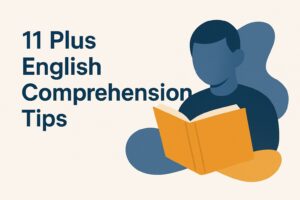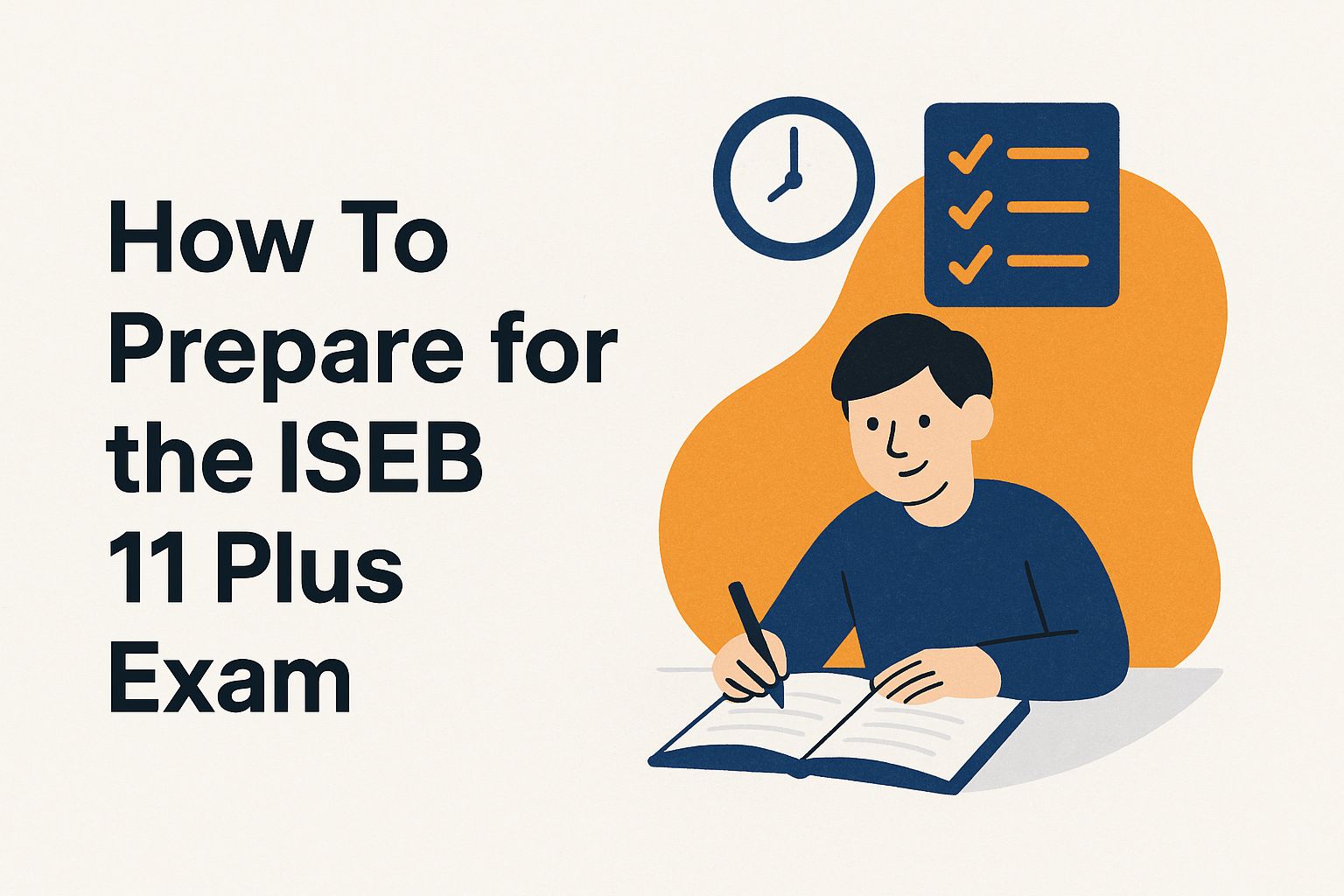
How To Prepare for the ISEB 11 Plus Exam
The ISEB 11 Plus Exam can feel like a daunting milestone for both kids and parents. But with the right preparation, it can be a manageable and even enjoyable journey! Understanding what the exam entails, creating a solid study plan, and exploring effective resources and techniques are all crucial steps.
Ready to discover how to set your child up for success? Let’s dive into everything you need to know to ace the ISEB 11 Plus!
What is the ISEB 11 Plus Exam?
The ISEB 11 Plus Exam serves as a standardised assessment designed for students aged 10 to 11, evaluating their preparedness for secondary education. This exam includes several components, encompassing English, mathematics, as well as verbal and non-verbal reasoning sections.
For effective preparation, it is advisable for students to practise with past papers, which can be found on various educational websites. Establishing a study schedule that allocates time for each subject promotes a balanced approach to learning.
Additionally, familiarising oneself with the exam format—whether it includes multiple-choice questions or timed essays—can significantly boost confidence. Resources such as CGP provide practise books specifically tailored to the ISEB 11 Plus, assisting students in reinforcing their knowledge and refining their strategies.
Importance of the ISEB 11 Plus Exam
Success in the ISEB 11 Plus Exam can have a significant impact on a child’s educational trajectory, influencing both school selection and future academic opportunities.
To prepare effectively for the ISEB 11 Plus Exam, it is essential to adopt a strategic approach. Begin by familiarising your child with the exam format and the types of questions that are commonly asked.
Resources such as ‘Bond 11+ Practice Papers’ are incredibly useful for both practice and understanding the exam structure. It is also beneficial to establish a study timetable, dedicating regular time slots each week to subjects included in the exam, such as English, maths, and reasoning.
Additionally, utilising online platforms like ’11 Plus Hub’ can provide interactive practice and tailored learning paths suited to your child’s needs. Conducting regular assessments at home will help track progress and identify areas for improvement, ensuring comprehensive preparation for the exam.
Understanding the Exam Structure
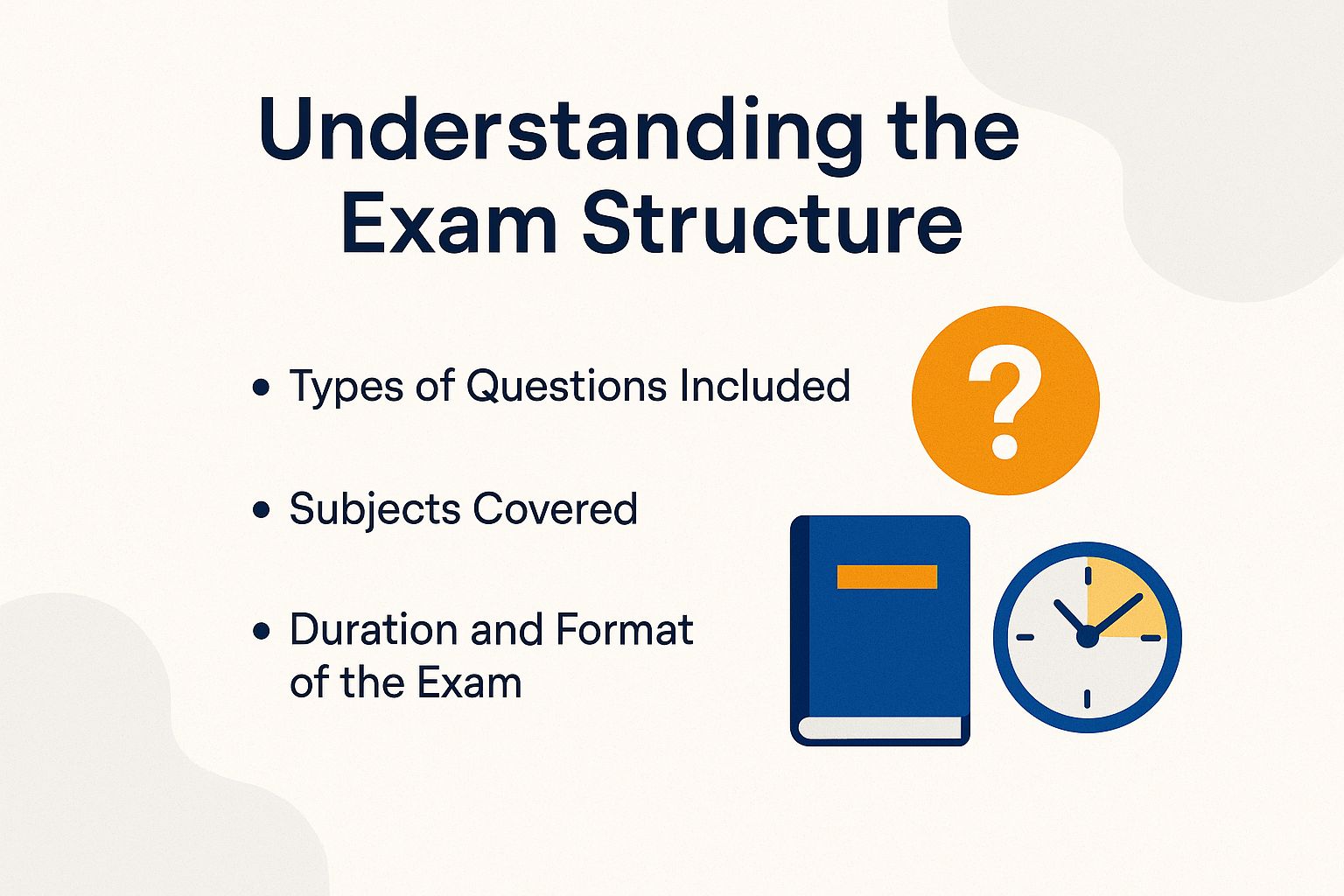
Grasping the structure of the ISEB 11 Plus Exam is essential for effective preparation, as it covers a range of subjects and question types. To enhance your study efforts, learn more about practical strategies for mastering comprehension with our 11+ Comprehension Tips.
Understanding this framework will help in strategising study efforts and ensuring a comprehensive approach to the exam.
Types of Questions Included
The exam features a variety of question types, including multiple-choice, short answer, and comprehension questions, all designed to evaluate cognitive abilities. Each question type has its own specific purpose.
For instance, multiple-choice questions primarily assess specific knowledge and problem-solving skills, while short answer questions are intended to evaluate comprehension and the depth of reasoning.
Consider a verbal reasoning question that might ask you to identify the conclusion of a passage; this requires careful analysis of language and structure. On the other hand, non-verbal reasoning questions often present patterns or shapes, asking you to complete sequences, which tests logical thinking independently of language skills.
Becoming familiar with these different formats can greatly improve your performance in the test.
Subjects Covered
The subjects assessed in the ISEB 11 Plus Exam include Mathematics, English, Verbal Reasoning, and Non-Verbal Reasoning, providing a thorough evaluation of a student’s abilities.
To prepare effectively, it is advisable to concentrate on practice papers tailored to each subject. For Mathematics, resources such as Bond 11+ Maths and CGP’s 11+ Mathematics Practice Papers are extremely useful for mastering the various question formats.
In the realm of English, engaging in reading comprehension exercises alongside grammar workbooks can be beneficial. For Verbal and Non-Verbal Reasoning, tools like the Letts 11+ Verbal Reasoning guide and Schofield & Sims Non-Verbal Reasoning materials are quite helpful.
Incorporating regularly timed practice sessions can foster familiarity and build confidence, ultimately boosting performance across all subjects while also developing essential problem-solving skills.
Duration and Format of the Exam
The ISEB 11 Plus Exam typically lasts for 2 hours, with time allocated across various subjects, making effective time management essential during preparation.
This exam is organised into multiple sections, usually encompassing English, mathematics, and reasoning. Each subject generally receives about 30 to 40 minutes, so it’s important to practise maintaining a steady pace during mock tests.
For instance, you might consider allocating:
- 30 minutes for English to read comprehension passages and answer questions,
- followed by another 30 minutes for mathematics to efficiently tackle problem sets.
Familiarising yourself with past papers and timing your responses can help you build stamina and speed, ensuring that you can complete each section without feeling rushed at the end.
Creating a Study Plan
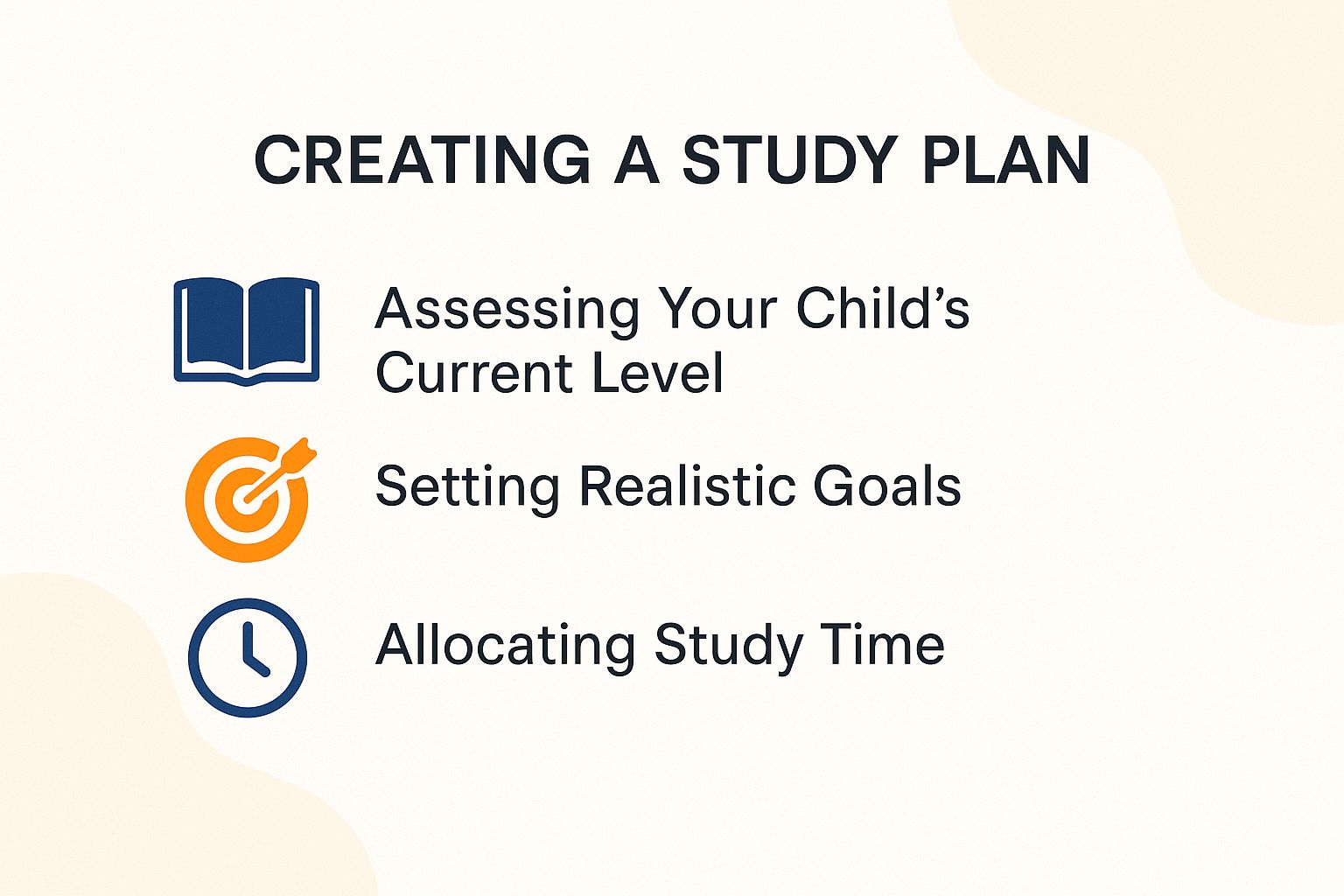
A well-structured study plan can significantly enhance a child’s academic performance by providing a clear roadmap for thorough exam preparation. This approach helps students remain organised and focused, ultimately leading to better results.
If you’re interested in exploring effective strategies for structuring a study timetable, you might appreciate our guide on 11+ Weekly Study Timetable: How to Plan Effective Revision at Home.
Assessing Your Child’s Current Level
To create an effective study plan, it is essential to start by assessing your child’s current academic level through practice tests and assessments. Resources such as the Bond 11+ series or ISEB past papers can provide a realistic preview of the exam format and the types of questions that will be encountered.
After administering these tests, take the time to analyse the results to identify your child’s strengths and weaknesses. For instance, if your child excels in maths but faces challenges in reading comprehension, it would be beneficial to prioritise focused reading exercises.
Additionally, consider incorporating structured time slots for each subject into your study plan based on these insights. This approach will ensure a balanced strategy that addresses areas that require improvement while also reinforcing the subjects in which your child already demonstrates proficiency.
Setting Realistic Goals
Establishing realistic goals serves as a source of motivation and a sense of achievement, which can help your child remain engaged throughout the preparation process.
To set effective goals, it is beneficial to utilise the SMART criteria, beginning with specificity. Instead of a vague statement like “I want to read more,” it can be more effective to express it as “I will read one book a month.”
Next, ensure that the goal is measurable by tracking progress with a reading log. It is important to consider achievability; evaluate your child’s current reading habits to determine if they can realistically manage one book each month. Additionally, make the goal relevant by selecting genres that they enjoy, such as fantasy or adventure.
Finally, assign a time frame to ensure that the goals are time-bound. For example, setting a deadline of six months for reading six books can foster a sense of accomplishment and encourage continued engagement.
Allocating Study Time
Effective allocation of study time is essential, with a recommendation of at least 10-15 hours per week to ensure balanced coverage of subjects. To create a study timetable, it is advisable to start by setting both daily and weekly goals.
One helpful method is the Pomodoro Technique, which involves alternating 25 minutes of focused study with a 5-minute break. This approach can significantly enhance concentration.
Each week, it is beneficial to allocate subjects based on their difficulty, reserving more challenging topics for times when your focus is at its peak. For instance, studying maths after lunch might be ideal when you feel alert and refreshed.
It is also important to review what you have learned on a weekly basis to reinforce your knowledge and adjust your goals for the following week. Utilising tools such as Google Calendar or Notion can greatly assist in organising your study timetable effectively.
Resources for Preparation
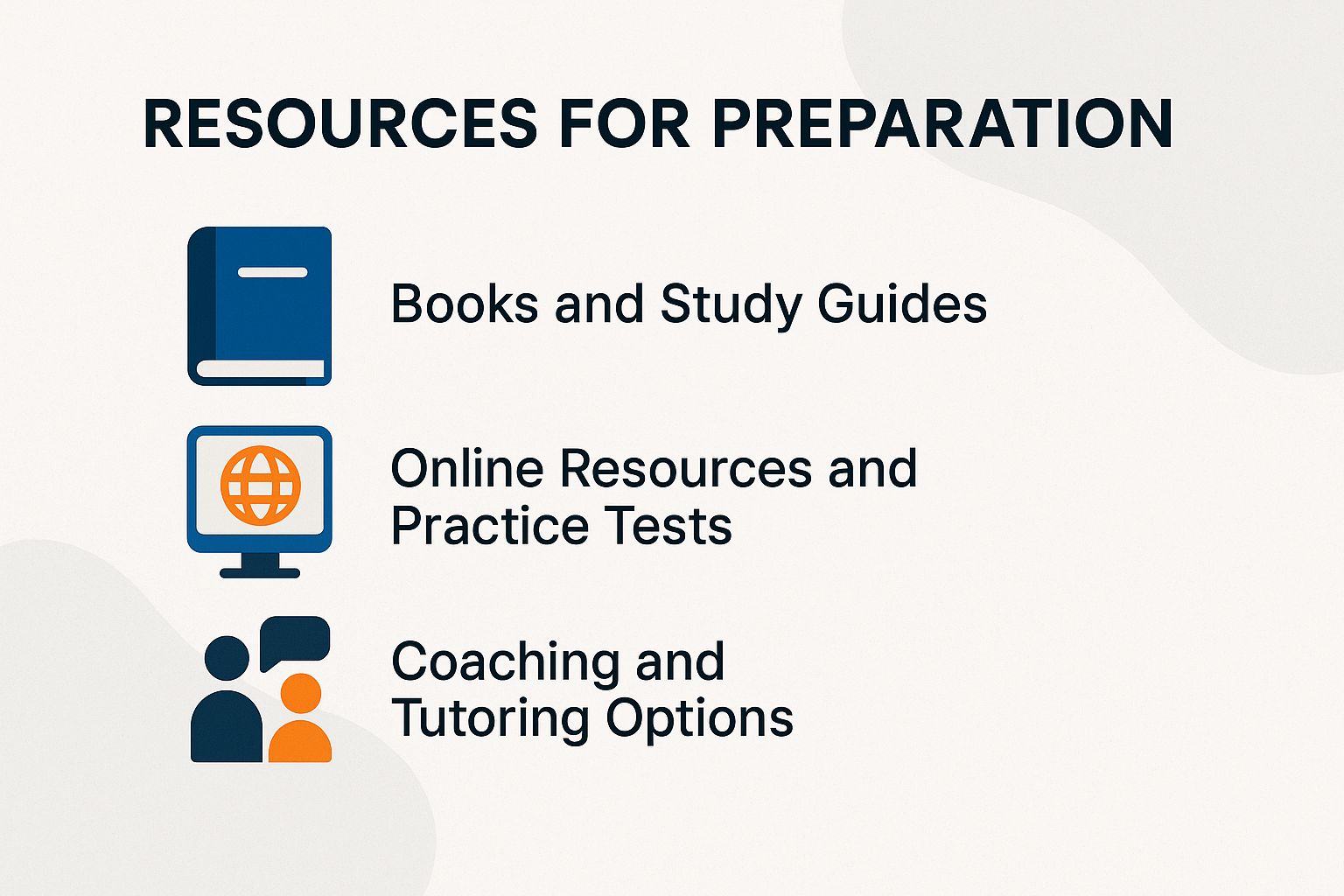
There is a wide range of resources available to assist with preparing for the ISEB 11 Plus Exam. These resources can significantly enhance study efforts by providing various methods and approaches to learning. Understanding the format of the 11 Plus Exam can also be a crucial part of effective preparation.
Books and Study Guides
Books such as 11+ English Practice Papers and the Bond 11+ Series are invaluable for providing structured content and essential practice questions. Additionally, GL Assessment 11+ Practice Papers (£25) offers a diverse range of questions designed to accommodate various learning styles, reinforcing the key concepts necessary for success in examinations.
On the English front, Schofield & Sims 11+ English (£12) specifically targets comprehension and vocabulary enhancement, making it an excellent resource for English revision. For mathematics preparation, Mock Tests for the 11+ (£15) offers timed tests that simulate actual examination conditions, allowing students to familiarise themselves with the testing environment.
Each of these books aligns closely with the core subjects required for success in the 11+ examinations, and they can be seamlessly integrated into your study schedule.
Online Resources and Practice Tests
Online platforms such as CGP and ISEB offer a wealth of practice tests and interactive content to ensure thorough exam preparation. While ISEB is a key focus for many independent schools, some regions may also use the GL or CEM formats, so drawing on a range of resources can be helpful.
For instance, Quizlet provides customisable flashcards that help reinforce key concepts, while Khan Academy offers instructional videos tailored to a variety of subjects. Additionally, you might consider exploring Revision World for free past papers and mark schemes to familiarise yourself with the exam format.
By incorporating these tools into your study routine, you can improve comprehension and retention, ultimately making your study sessions more effective. Aiming to dedicate at least an hour each day to these resources can help you build a solid preparation strategy.
Coaching and Tutoring Options
Investing in tutoring services such as Explore Learning or Tutorful can offer personalised support to meet individual learning needs.
Explore Learning provides face-to-face tutoring at approximately £40 per hour, emphasising interactive group sessions. In contrast, Tutorful offers both online and face-to-face tutoring options, with prices ranging from £20 to £50 per hour, depending on the tutor’s experience.
For instance, a parent in London shared that their child’s maths scores improved significantly after just six sessions with a Tutorful tutor. Additionally, online platforms like Preply facilitate one-to-one lessons with flexible scheduling, which is particularly convenient for busy families.
This variety of options allows students to choose the tutoring approach that best aligns with their learning style and budget.
Effective Study Techniques
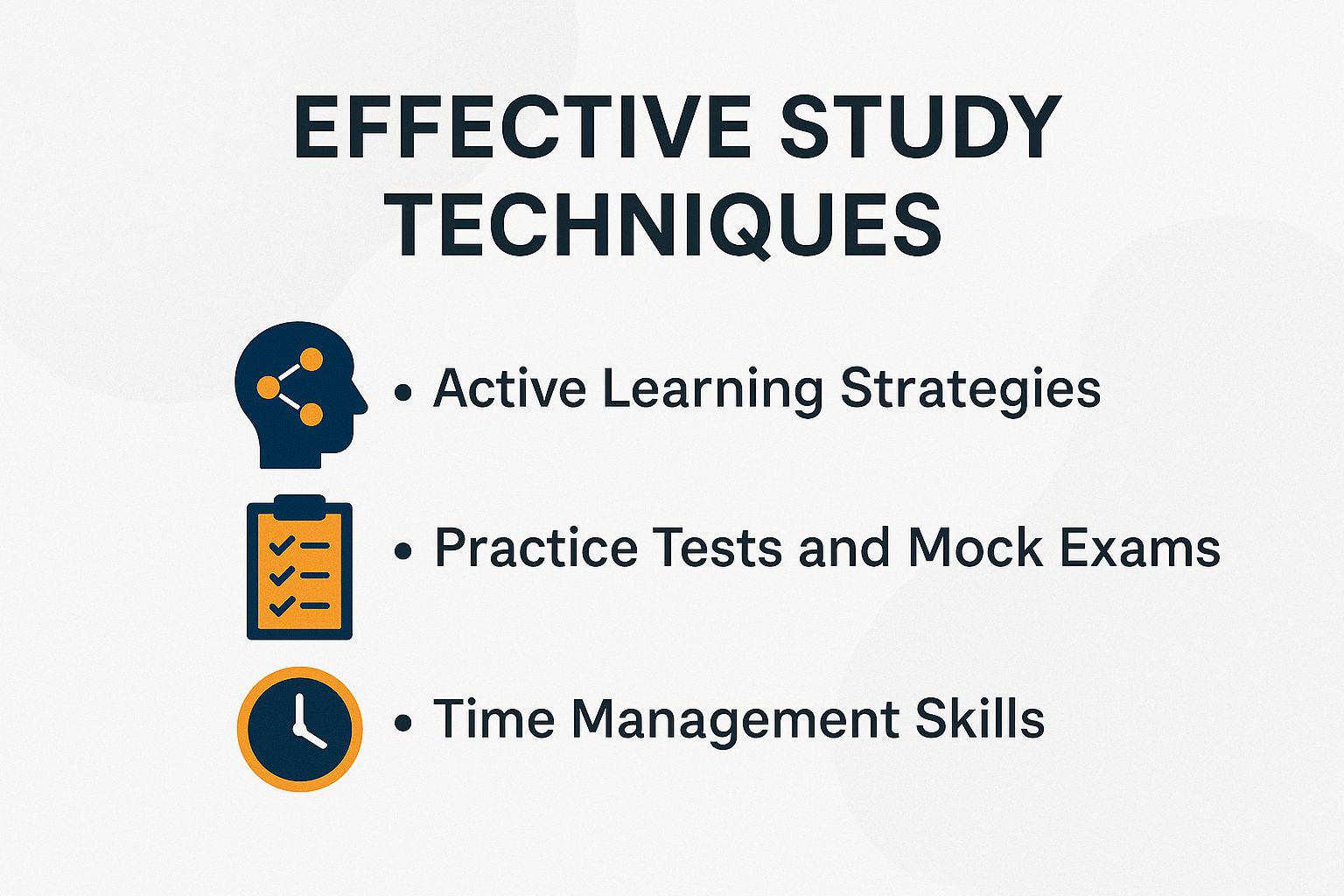
Utilising effective study techniques can significantly improve retention and understanding, which are essential for achieving success in the ISEB 11 Plus Exam. For an extensive analysis of comprehension strategies, our 11+ Comprehension Tips offer insights that can help your child succeed.
Active Learning Strategies
Active learning techniques, such as summarising information and teaching concepts to peers, can significantly enhance comprehension and retention.
Incorporating group study sessions offers an excellent opportunity for individuals to deepen their understanding through collaborative discussions. For instance, utilising educational games like Kahoot! or Quizlet can transform review sessions into engaging and competitive activities, thereby increasing motivation.
Forming study groups where members take turns explaining different topics serves a dual purpose: it reinforces individual knowledge and cultivates communication skills. To effectively implement this approach, it is advisable to schedule regular meetings—perhaps once a week—dedicated to specific subjects, ensuring that everyone has the chance to contribute.
These methods collectively foster an active learning environment that promotes a deeper engagement with the material.
Practice Tests and Mock Exams
Regularly taking practice tests, such as those offered by ISEB, can be an effective way to assess your preparedness and identify any knowledge gaps prior to the actual exam.
To maximise the benefits of these practice tests, it is advisable to simulate the exam environment as closely as possible. Set a timer that reflects the actual test duration, which will help you become familiar with the pacing required.
Additionally, create a quiet space that is free from distractions; using tools such as noise-cancelling headphones may be beneficial.
After completing a test, it is important to evaluate your performance thoroughly. Take the time to review any incorrect answers to understand your mistakes, and adjust your study focus accordingly.
For a well-rounded preparation strategy, consider using practice tests from multiple sources. This approach exposes you to a variety of question formats and difficulty levels, further enhancing your readiness for the exam.
Time Management Skills
Developing effective time management skills is crucial, and one helpful technique is to create a countdown calendar to manage study and revision time efficiently. Utilising tools such as Trello or Google Calendar can greatly enhance your study organisation.
It is advisable to begin by breaking down your syllabus into manageable sections and assigning specific times for each topic in your calendar. This strategy not only promotes accountability but also ensures that you remain on track.
During the exam period, it is important to prioritise tasks based on their urgency and importance. You might consider using a matrix to identify the key areas that require your focus.
Additionally, allocating focused study sessions of 25 to 30 minutes, followed by short breaks, can improve retention and help prevent burnout.
Building Confidence and Reducing Anxiety
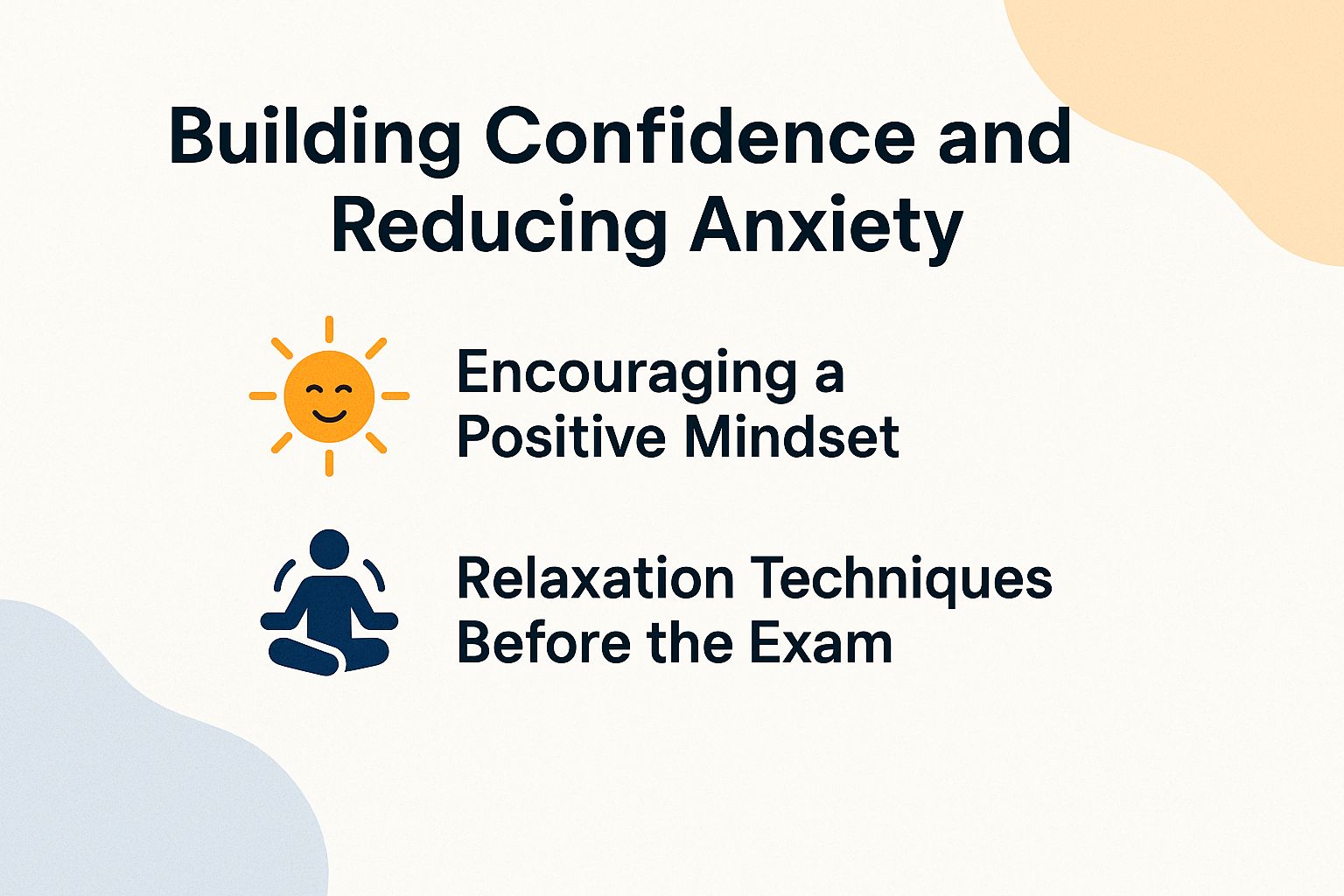
Fostering confidence and minimising anxiety can greatly improve performance in the ISEB 11 Plus Exam, resulting in a more positive experience overall. By creating an environment that encourages self-assurance and reduces stress, students are more likely to showcase their true abilities during the exam.
One effective strategy is to develop a growth mindset, which builds resilience for exams, thereby enhancing overall exam readiness.
Encouraging a Positive Mindset
Encouraging a positive mindset through affirmations and celebrating small achievements can significantly impact your child’s approach to exams.
One effective method is to incorporate visual aids, such as a motivation board filled with images and quotes that resonate with your child. For example, you might include pictures of their favourite accomplishments or role models, alongside affirmations like “I am capable” or “I can succeed.”
Additionally, setting aside time each week to reflect on accomplishments, regardless of how minor they may seem, can enhance self-esteem and reinforce a positive outlook.
Using tools such as a reward chart or journaling can be beneficial for tracking progress, as these methods help your child visualise their journey and maintain motivation.
Relaxation Techniques Before the Exam
Practising relaxation techniques, such as deep breathing exercises or yoga, can effectively calm nerves and enhance focus before an exam. Incorporating these relaxation exercises into your child’s daily routine can be both enjoyable and beneficial.
For example, you might set aside just 10 minutes for guided deep breathing, where your child inhales for a count of four, holds for another four, and exhales for six. Additionally, introducing simple yoga poses like Child’s Pose or Legs-Up-the-Wall can be a great way to bond, and these can easily be done together in the morning.
It’s advisable to aim for practice in the week leading up to the exam, gradually increasing the frequency of these exercises to help reduce anxiety and foster a sense of calm.
Day of the Exam Preparation
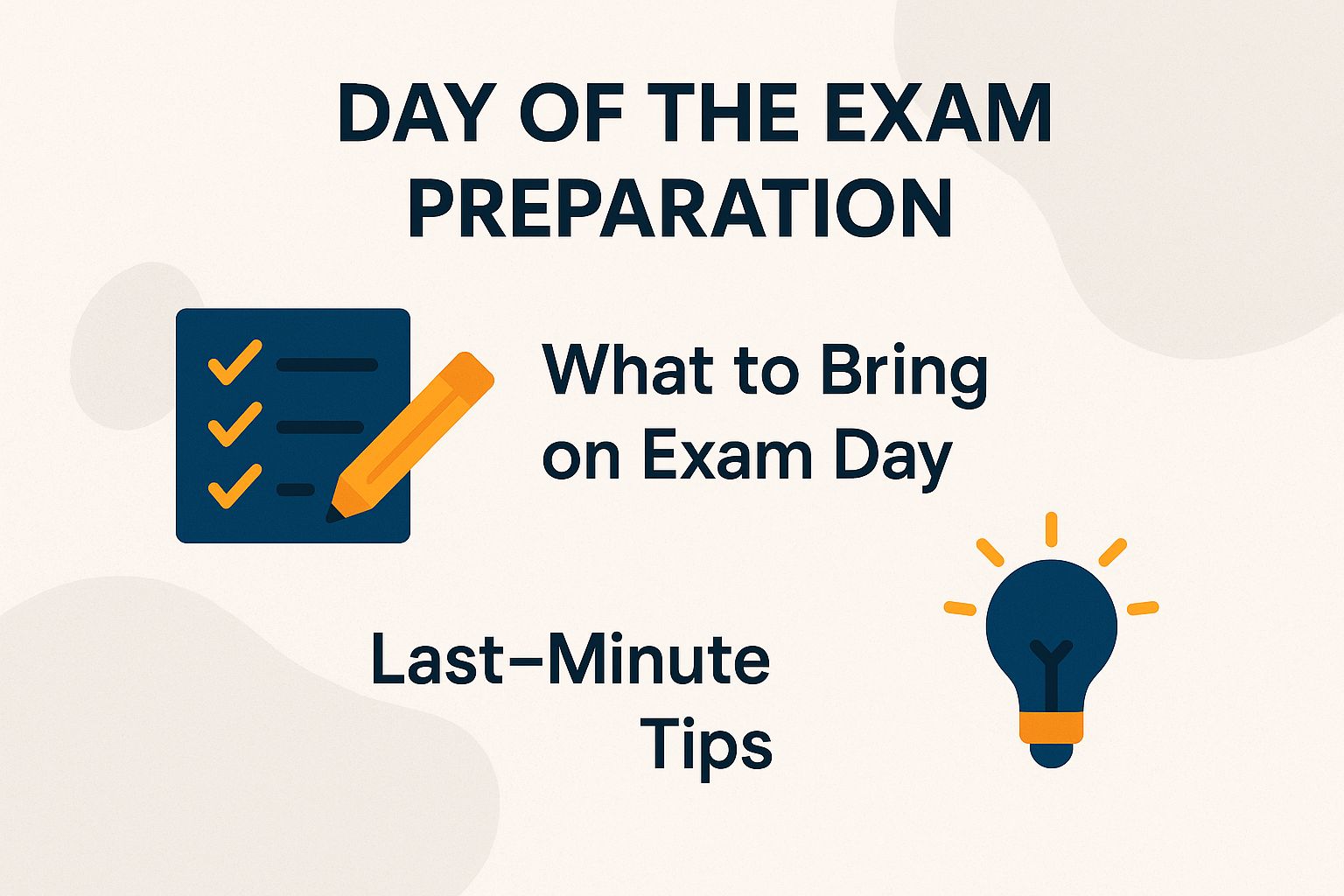
Sufficient preparation for exam day can significantly reduce stress and ensure that your child is fully prepared to perform at their best.
What to Bring on Exam Day
On exam day, it is important for your child to bring essential items such as pens, a water bottle, and snacks to help maintain focus throughout the session. Additionally, it is crucial to check for any specific requirements set by the examining body. For example, some exams may require a certain type of calculator or identification.
To keep everything organised, consider using a clear plastic zip bag for these supplies, which will help streamline the security check. Encourage your child to pack their bag the night before to ensure they include important items such as:
- Spare batteries for devices
- A study guide for quick reference
- A comfortable jumper, in case the exam room is chilly
Last-Minute Tips
Last-minute tips, such as reviewing key concepts and avoiding cramming, can effectively reinforce learning and enhance confidence right before the exam.
It’s beneficial to focus on targeted revisions by quickly going over your notes or flashcards on essential topics. Taking a short, timed practice test can help identify any weak areas, but it’s advisable to limit this to 30 minutes to avoid burnout.
Additionally, staying hydrated with water and snacking on brain foods like nuts or fruit can provide sustained energy. Engaging in deep breathing or mindfulness exercises for a few minutes can foster a positive mindset, alleviating anxiety and promoting clarity as you prepare for your exam.
Frequently Asked Questions
What is the ISEB 11 Plus Exam?
The ISEB 11 Plus Exam is an entrance exam for students in the UK, typically taken in Year 6, to gain admission into selective independent schools. It tests students’ knowledge and skills in English, Maths, and Reasoning.
When should I start preparing for the ISEB 11 Plus Exam?
It is recommended to start preparing for the ISEB 11 Plus Exam at least one year in advance. This allows enough time for students to cover all the necessary topics and practice test-taking strategies.
What subjects are covered in the ISEB 11 Plus Exam?
The ISEB 11 Plus Exam covers English, Maths, and Reasoning. The English section includes comprehension, grammar, and writing tasks. The Maths section covers arithmetic, algebra, geometry, and problem-solving. The Reasoning section assesses students’ skills in verbal and non-verbal reasoning.
How can I effectively prepare for the ISEB 11 Plus Exam?
To effectively prepare for the ISEB 11 Plus Exam, students should start by familiarising themselves with the exam format and syllabus. They should then create a study schedule and practice regularly with past papers and sample questions. It is also recommended to seek guidance from a tutor or join a study group.
Are there any resources available to help with ISEB 11 Plus Exam preparation?
Yes, there are various resources available to help with ISEB 11 Plus Exam preparation. These include practice books, online courses, study guides, and tutoring services. It is important to choose resources that align with the exam format and syllabus.
How can I manage stress and anxiety while preparing for the ISEB 11 Plus Exam?
To manage stress and anxiety while preparing for the ISEB 11 Plus Exam, students should take breaks, stay organised, and maintain a healthy lifestyle. It is also important to have a positive mindset and believe in one’s abilities. Seeking support from family and friends can also help alleviate stress and anxiety.


